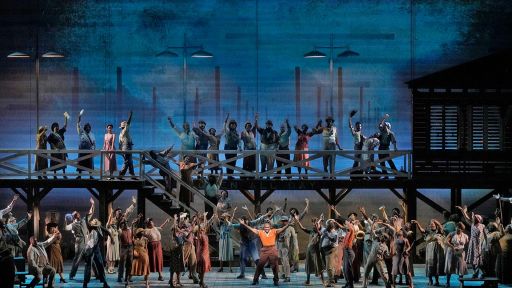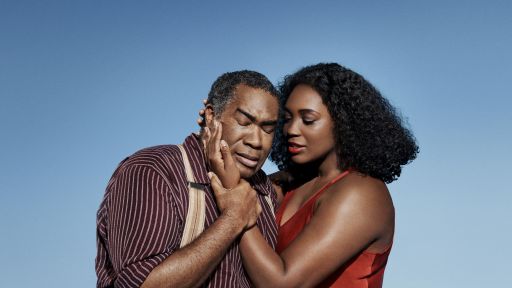By Jasmine Wilson
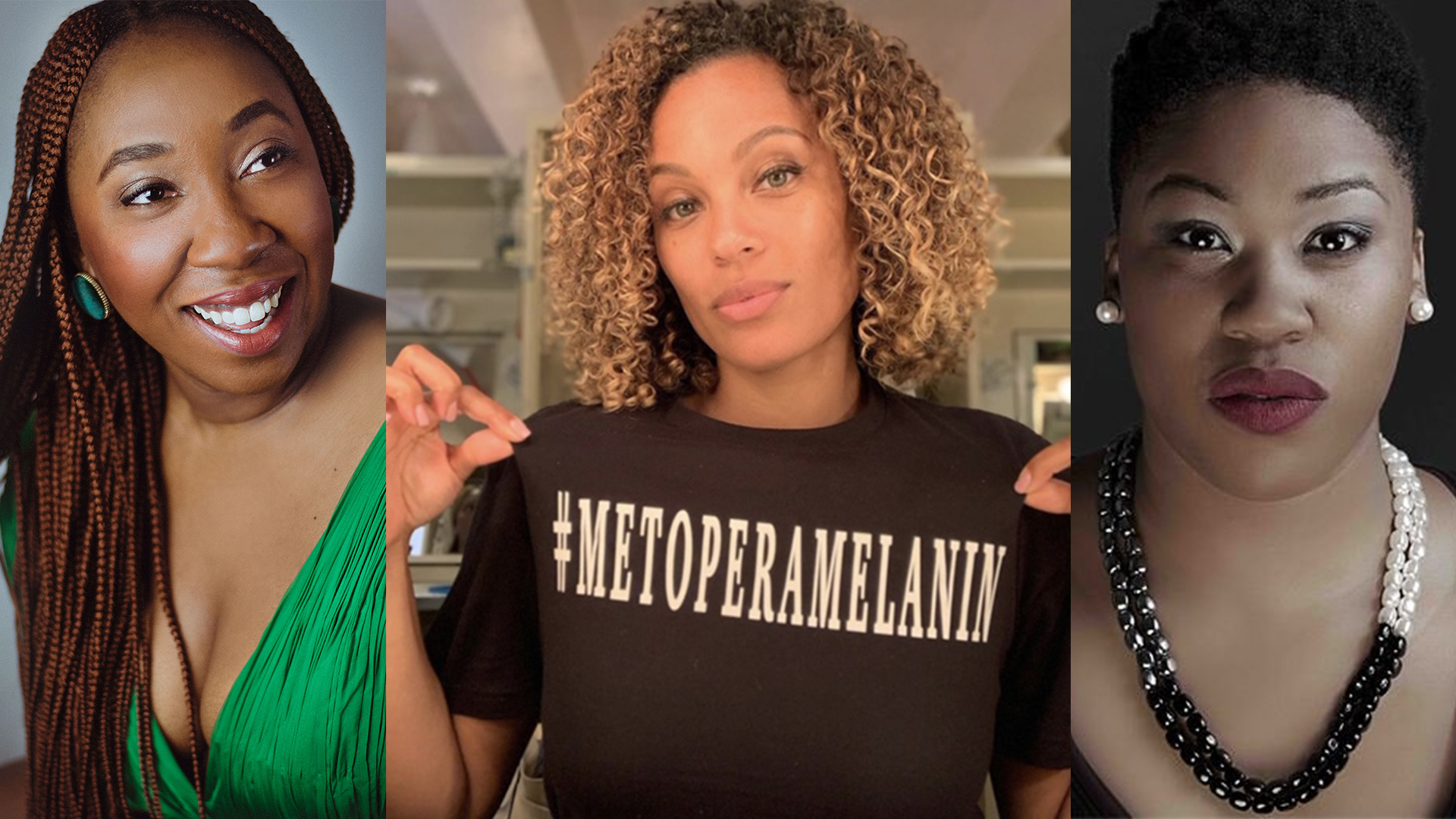
Great Performances at the Met premieres Gershwin’s famous folk opera, Porgy and Bess on July 17 at 9 p.m. on PBS (check local listings). For the first time in nearly 30 years, the production returns to the Met stage starring the stunning Eric Owens and Angel Blue in the title roles. Audience members travel to Catfish Row, a fictional town inspired by the African American Gullah culture of South Carolina. This dynamic production features masterful singing, contagious dance and a tragic love story that will stimulate all your senses.
Have you ever wondered what it’s like to be in the cast of a Metropolitan Opera production? WNET’s Jasmine Wilson chatted with three Porgy and Bess cast members who made their ensemble debut in the production: lyric soprano Denisha Ballew (ensemble, featured soloist, and covered the role of Annie), lyric soprano Rebecca Hargrove (ensemble), and dramatic mezzo-soprano Karmesha Peake (ensemble). Check out this special insider’s view to discover what it was like behind the scenes of this magical production.
*Responses have been edited for clarity.
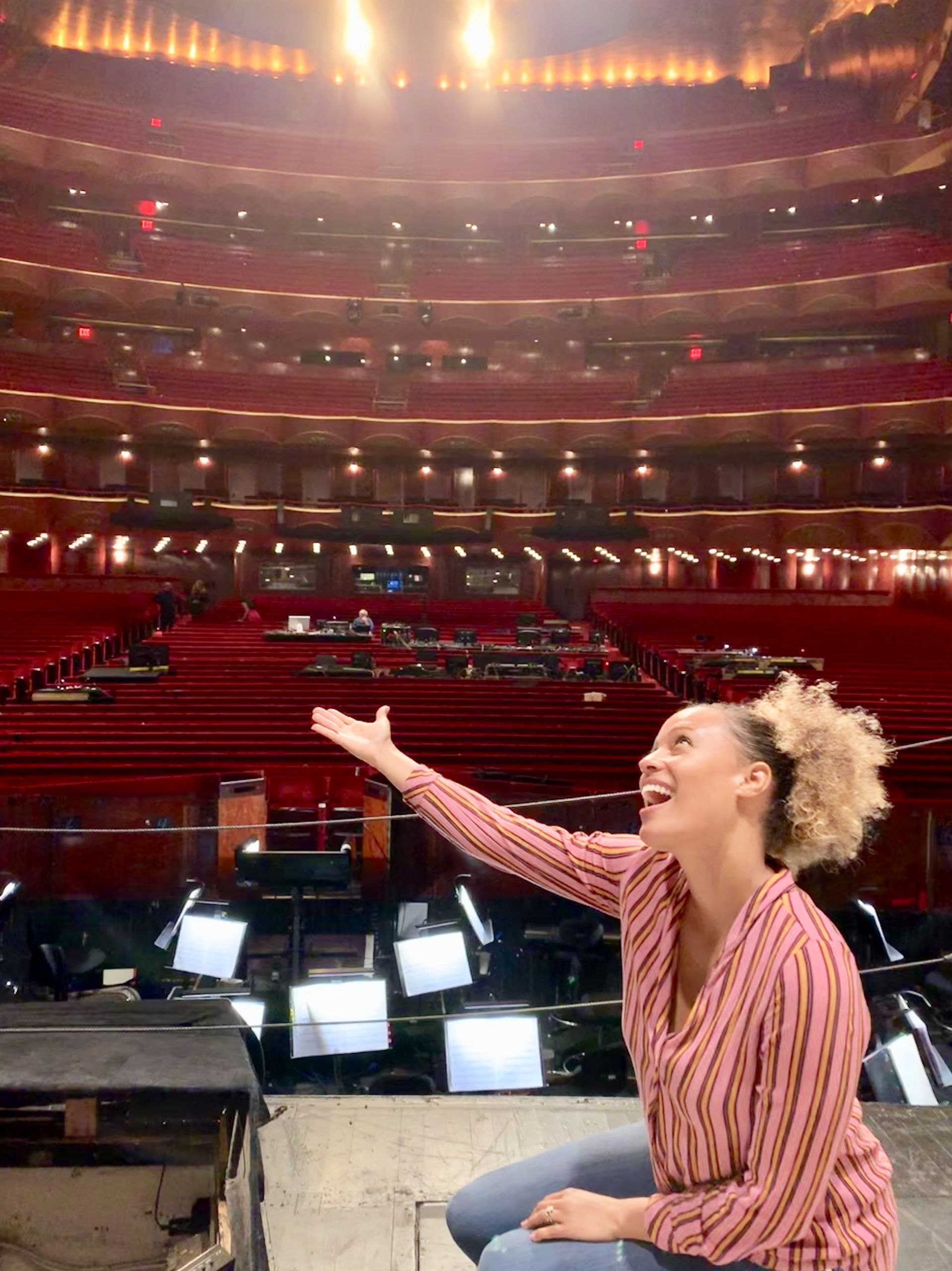
- Jasmine Wilson: So many singers dream of touching the Metropolitan Opera stage. How did the rehearsal process feel?
Denisha Ballew: The first day of rehearsal was full of excitement and nerves for all of us, especially me. I was so excited to see all my fellow cast mates. And it was kind of like a reunion. We were excited to be in the building, and to finally see who was actually in the ensemble with us. Day one was just a really beautiful moment of beautiful, Black, excellent, artists coming together and celebrating such a classic piece from American music—one of the most beautiful pieces of American repertoire and opera.
Rebecca Hargrove: Out of the 64 of us, there had to be less than 20 people I had not already met or worked with yet. More than half of this group were people that I had already worked with and formed a bond with, or I worked with and formed a sisterhood with. To walk into a room at the Met with 60+ Black people in it was exhilarating and overwhelming at the same time.
Karmesha Peake: Everyone was on their A-game. It was interesting how many people knew all the lyrics, and all the melodies to all the parts that were not their own. I remember one time in rehearsal, Denyce Graves was out, and her cover was out as well. And we were in a scene that had some lines for Maria, and while we were going through it, everyone was singing it audibly. The ease and comfort for us to do that audibly speaks volumes of how relaxed the atmosphere was. It was a great experience.
- JW: It sounds like such a magical experience. What was your favorite part of being in the Metropolitan Opera production of Porgy and Bess?
DB: There were many great moments! It’s hard to name one. However, sharing my Met debut with over 60 of my dear friends and colleagues was one very special moment. Also, the opportunity to collaborate with Camille A. Brown again was a highlight. She brings such a beautiful spirit to the space. Her expertise in dance and her unapologetic attitude to be Black, beautiful and bold is amazing! She created and reminded us to not be afraid to express our culture in its true authenticity. Lastly, the opportunity to be onstage with some of the great artists that we’ve all looked up to; Angel Blue, Eric Owens, Latonia Moore and especially Denyce Graves! They welcomed us into the Met family with open arms, warm spirits and encouraging gestures. I am forever grateful to God for these memories.
RH: Towards the second half of the run, Denyce Graves would bake us treats for every show. She brought them out on stage and mixed them in, because there’s a bit where she pulls a peach cobbler out of the oven. They actually had a chef that made us peach cobbler every night. The first night Denyce Graves brought treats and every subsequent performance after that, we would all try to get to that table before the next downbeat to get whatever cookie, scone, or muffin she had made that night.
KP: My favorite part was getting on the stage because up until that time, we were in a rehearsal room where they had portions of the set and/or props. But it wasn’t full to scale. So being on the stage for the first time, on the actual set, was probably my favorite part because that was when it becomes real, and the whole story comes alive. Being on the set with orchestra made it so real.
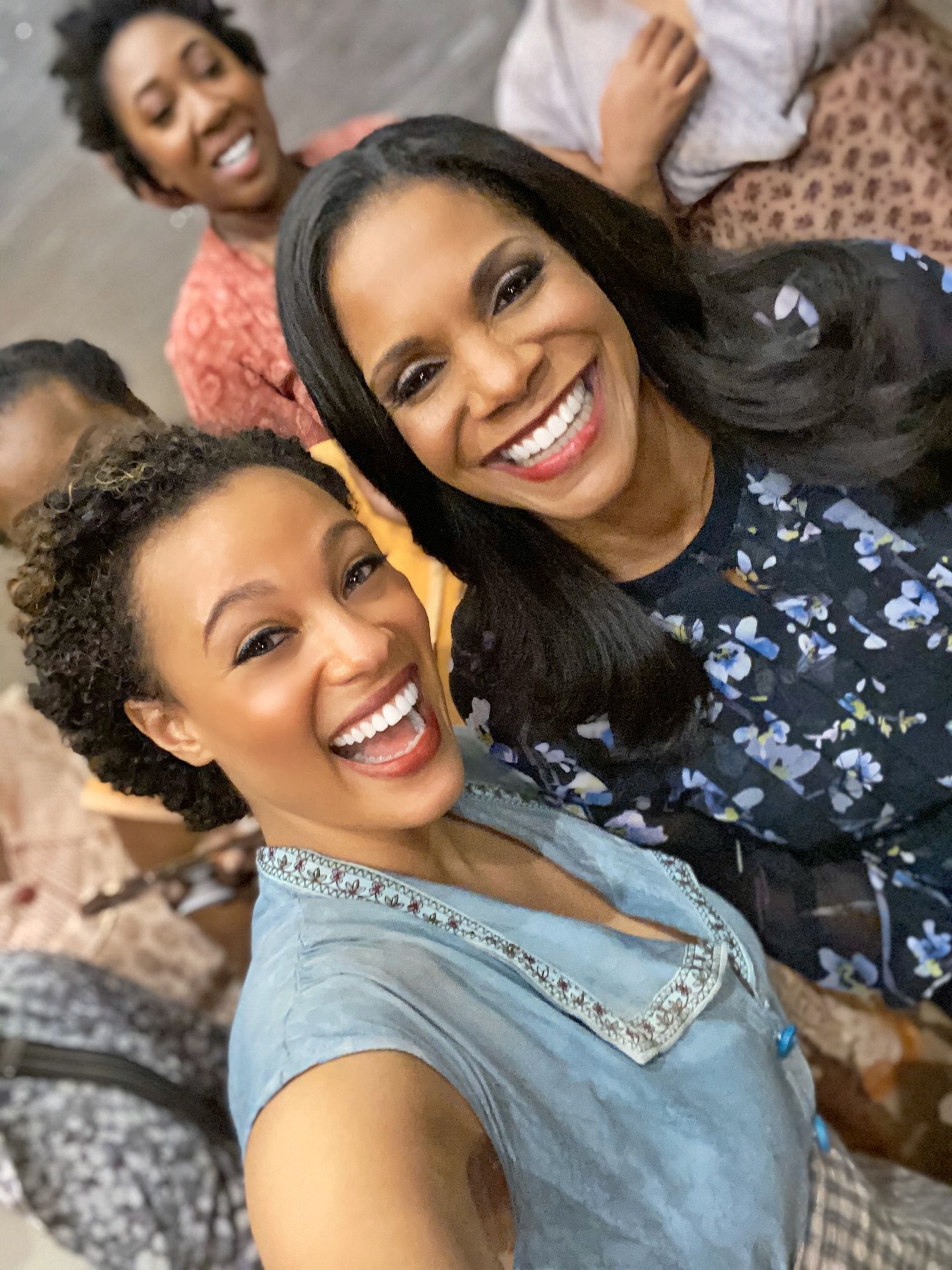
- JW: Why was being in a fully African American cast so special?
DB: It shows people that we are capable of singing in an art form that wasn’t necessarily created for us. We have the skills, talent, and expertise to execute opera in such a way that people want to keep coming back, and they want to hear it and see it. The Met is now going to be bringing the first production by an African American composer. And they’re going to add Porgy and Bess to their rotation of operas within their season. I think it’s important that this production represents American history; it’s not just Black history. Black history is American history. And Black music needs to be celebrated.
RH: The beauty in this production is that I did it with my community. When you walk in a rehearsal room and you’re the only one, whatever that thing is that makes you feel “othered”, that’s a whole different layer to try and combat on top of wanting to be your best. It can feel like I’m representing my entire race, and I have something to prove. Porgy is like a family collective. It feels safe.
KP: A part of the Black American experience is that we give what we have to anyone who needs it. And even in performing, we give what we have to those that need it. Every show before the curtain would rise, we got in a huge circle and prayed to God for another successful show. And I think that speaks volumes to our community as well. We’ve long been a faith-based community, and nothing was different about that even at the Metropolitan Opera. We fostered that sense of community. We were there, present, in the moment together.
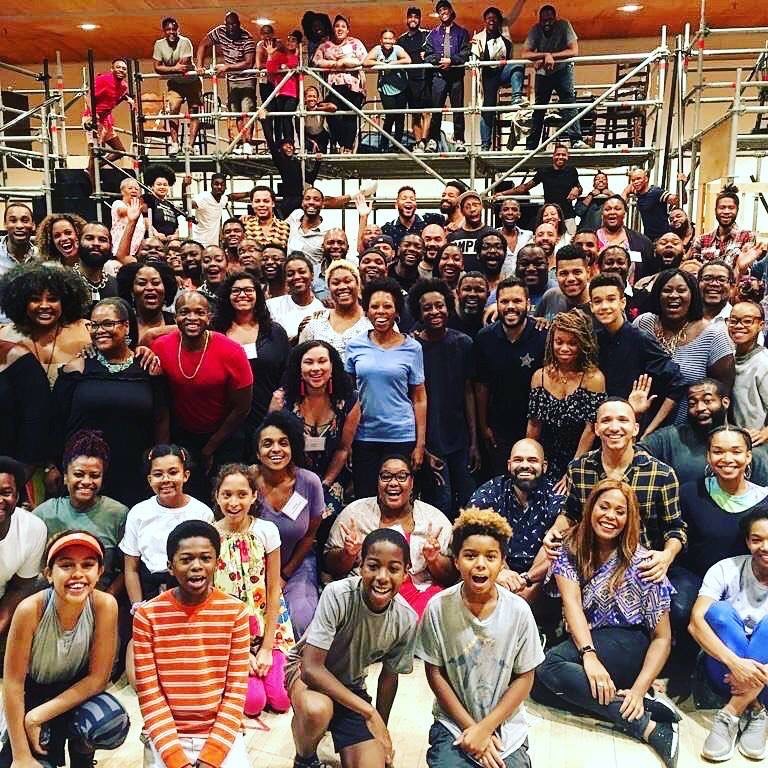
- JW: There is a dramatic shift happening right now in the performing arts world when it comes to diversity, equity, and inclusion. What would you like to see in the future of opera and classical music?
DB: I believe that everyone that came into audition for Porgy and Bess was important because they opened up the creative team, the casting, and the people “behind the table.” It enabled them to see all the amazing voices that exist that so happen to have brown skin. We sing well, and we’re also capable of singing so many other operas, not just operas in English. Auditioning for this production, I remember a lot of my colleagues said, “Oh, you know, I offered Mozart, French, or a German piece.” This is something we have discussed in our new group on social media, the Black Opera Alliance. We are Black, and we received the same schooling and training as our white counterparts. Now we just need the opportunity.
RH: For this industry as a whole, from the board of trustees to the janitor, I want to see theatres reflect the world I live in. And the world that I live in is not all white. If you walk out at Lincoln Center, you’re going to see people of all shapes, sizes, colors, ethnicities and backgrounds. So why would the theatre, which is supposed to be a reflection of the real world, not reflect the real world?
KP: Include Black singers that are prepared. No one is asking to be cast when they’re not prepared. But at the same time, only hiring someone for the “Black show,” or two or four Black singers in the regular chorus needs to change. I would love to see more representation of people of color on stage. I would also like to see more Black people as directors, set designers, and lighting designers. We’re here. We exist.
- JW: It’s clear that a lot of thought and detail went into creating this production. What’s one thing for audience members to look for while watching the broadcast?
DB: The audience should keep their hearts, minds and ears open to the glorious sounds and storyline that Black voices make and give. I’m reminded of the Langston Hughes poem that states, “I Too, Sing America!” What we need most is the opportunity to be heard, not just in “Black shows” but also in all the operatic repertoire; from Strauss, Mozart, Bellini and Puccini. We sing Gershwin well. He wrote it so that we may be expressive and show the glory of our culture. But we are multifaceted. The audience should listen. The next great voices are potentially coming from Black artists!
RH: For our broadcast, which is the moment people are watching on PBS, they actually took the house lights up for us when Angel Blue walked out for her final bow. And we had never seen the house full of people. It was always dark. When we could see that the orchestra to the family circle was packed with no empty seats, every single person on stage was crying hysterically just thanking God, so thankful and moved.
KP: Look out for the community. There is a fabric of relationships happening on the stage, whether it’s spouses or groups that gather, like the church ladies that gather together to gossip. There’s community within the community. Little pockets of interactions happen while Porgy and Bess are experiencing their own world. Look out for those little interjections and instances that lend to the flavor of the whole production.
To experience the full magic of Porgy and Bess, tune in to Great Performances at the Met on July 17 at 9 p.m. on PBS. Please be sure to check your local listings, as dates and times can vary widely across the country.


